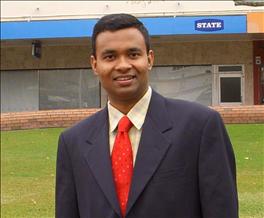The visit of US President Barak Obama to India between November 6 and 9, 2010 could be termed eventful and historic, buttressing his observation that US viewed India as a “Cornerstone of America’s engagement in Asia.”
India’s emerging important in world affairs was underscored by the visit of the leaders of all the five Permanent Members of the UN Security Council (China, France, Russia, UK and the US) to that country over the last two years.
Mr Obama’s visit coincided with Diwali, the Festival of Lights, and blended with diplomacy, geo-politics and business.
He was the sixth US President and the third Democratic President to visit India. Among the US Presidents who visited India earlier were Dwight Eisenhower (1959), Richard Nixon (1969), Jimmy Carter (1978), Bill Clinton (2000) and George W Bush (2006).
Countering Terrorism
 A joint mechanism to counter terrorism, Indo-US Civil Nuclear Liability Bill, Defense deals, and India’s quest for permanent membership in the UN Security Council were among the issues that the visiting President discussed with India’s Prime Minister Dr Manmohan Singh and other leaders in India.
A joint mechanism to counter terrorism, Indo-US Civil Nuclear Liability Bill, Defense deals, and India’s quest for permanent membership in the UN Security Council were among the issues that the visiting President discussed with India’s Prime Minister Dr Manmohan Singh and other leaders in India.
Commenting on Obama’s visit to India, Robert Patman, Professor of International Relations at the Otago University in Dunedin said, “The Obama administration evidently sees India as a strategic partner for a variety of reasons. India’s importance as a potential strategic partner has steadily increased in the eyes of Washington because of India’s growing economic and military power and its strong democratic credentials,” he said.
India’s strategic expert K Subhramanyam endorsed that view.
Rising Indians
“The contributions of the Indian Diaspora to the technological growth of the US has enabled it stay ahead of China in the technological race,” he said.
According to the 2009 US Census Bureau data, the median household income of Indians in the US was $US88, 538 compared to $US50, 221 for the entire US population.
Of those who work, 65.4% are in managerial, professional or related occupations, compared with 35.7% of the total population.
The Indian Diaspora is fairly represented in the Obama administration. Among them are Vice Chair of the Council of the Administrative Conference of the US Preetha Bansal, Rajiv Shah, Administrator, United States Agency for International Development Administrator Rajiv Shah, Federal Chief Information Officer Vivek Kundra and First Chief Technology Officer Aneesh Chopra.
Hillary Clinton in Wellington
While Obama was on state visit to India, Secretary of State Hillary Clinton was on a three-day visit to New Zealand (November 4 to 6, 2010) signaling a paradigm shift in US-New Zealand relations. The visit opened a new chapter, testified by ‘The Wellington Declaration’ signed by the two countries.
Mr Patman said Ms Clinton’s visit heralded a new era in the US-Kiwi bilateral relations.
“Old differences centering on New Zealand’s anti-nuclear stance since the mid-1980s have been set aside. The Obama administration has decided to broaden relationship with New Zealand, reflecting a determination to increase America’s level of engagement in the Pacific region,” he said.
Balaji Chandramohan is Editor of the Asia with World Security Network based in New Delhi. He graduated in Journalism from the University of Waikato two years ago The picture here (by Shruti Supria of the New Tribune) shows US President Barak Obama and his wife Michelle receive a warm welcome from India’s Prime Minister Dr Manmohan Singh and his wife Gursharan Kaur on their arrival in Delhi on November 7, 2010.






